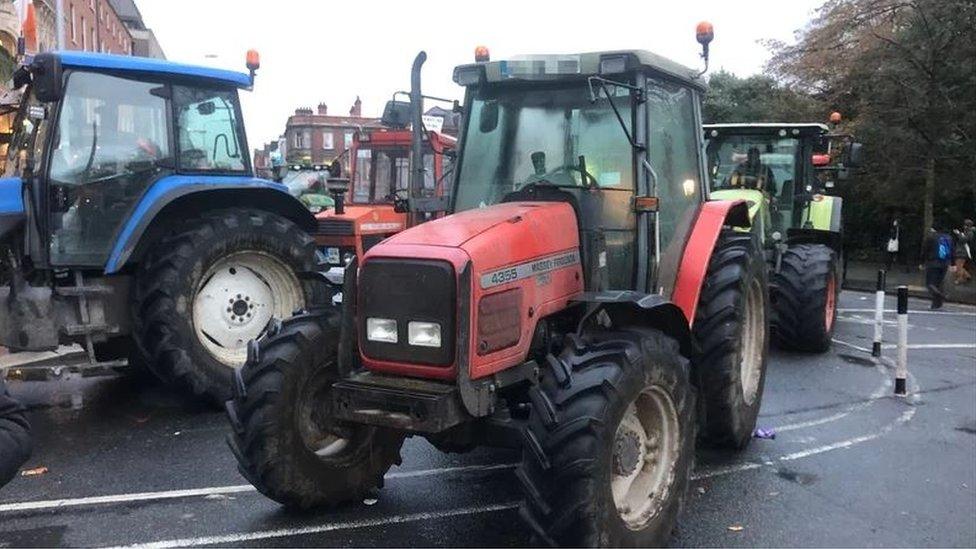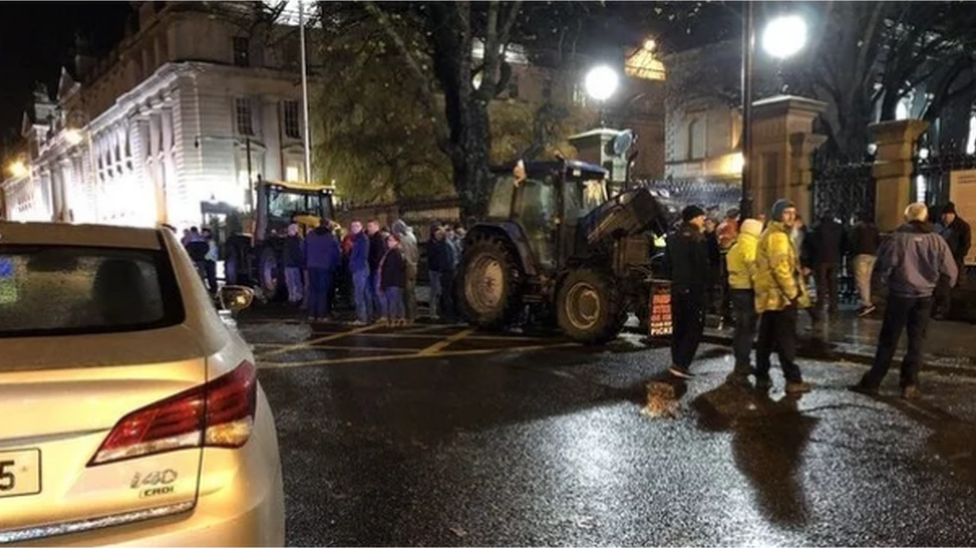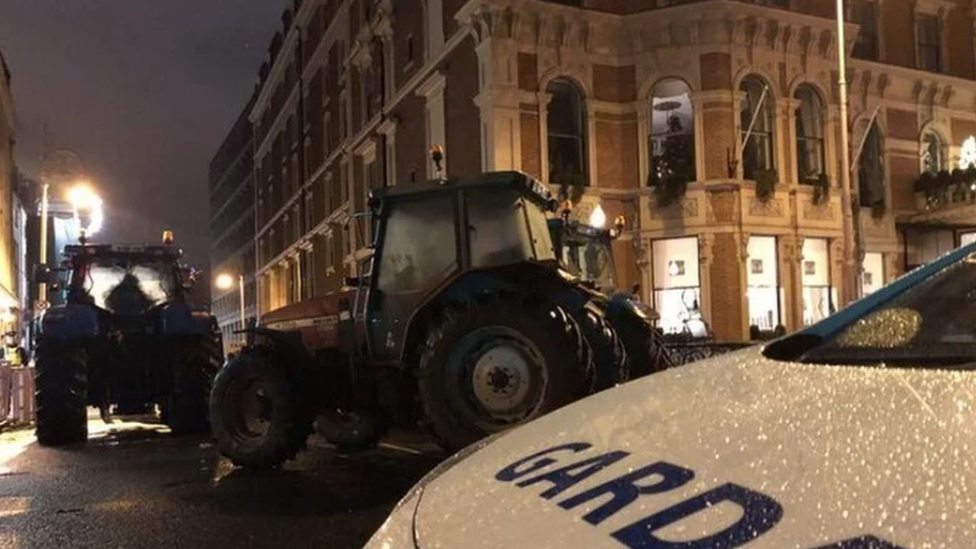Farmers lift Dublin blockade after two days of protests
- Published

The blockade was put in place in Dublin city centre
A farmers' protest in Dublin involving a cavalcade of tractors has ended after two days.
The unofficial action, calling for better prices for cattle, resulted in streets being blocked around the centre of the Irish capital.
Protestors handed a letter to Ireland's Agriculture Minister Michael Creed outlining a number of issues.
They warned that if no progress is made, they will be back on the streets on 15 December.
The tractors began leaving the city centre on Wednesday afternoon.
The independent group of farmers are demanding better prices for cattle, and says the Irish government needs to do more for rural Ireland, which it says is in crisis due to unviable farm enterprises.

Analysis
By Shane Harrison, BBC News NI Dublin correspondent
The Independent Farmers Ireland group, although relatively new, has been protesting about something farmers have long been complaining about - the price they get paid for cattle.
In September, there were pickets and blockades outside meat plants across the state with farmers saying it was uneconomical for them to produce beef at the price they were getting.
Many of the protesters feel let down by the more mainstream farming representative groups and, in a way, they are not unlike a rural Irish equivalent of France's gilets jaunes or yellow vest campaigners.
These are strange times for farmers.
Hardly a week goes by without some media report about how cows passing wind is a major contributor to climate change, while at the same time there is the promise of massive exports to the growing Chinese market.
The beef industry is hugely important to Ireland, but the protesting farmers complain they - the producers - are not the ones benefiting.


Around 30 protesters blocked Irish parliament members on Thursday
The established farm organisations were not involved and those who took part said it was a people movement.
